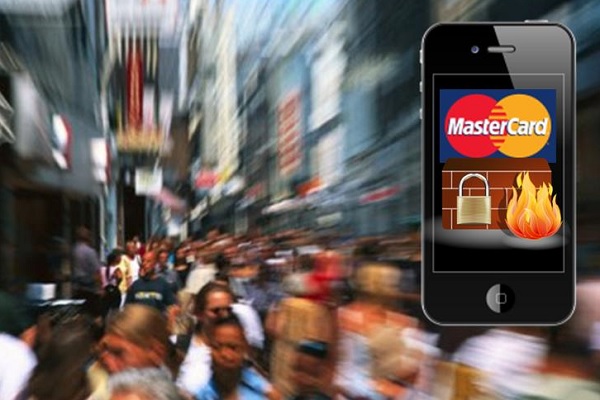The credit card giant will be working with Syniverse on this location based verification checking.
With the explosion in the number of smartphone users that there are around the world, MasterCard is working to capitalize on these consumers – particularly those travelling internationally – and to encourage them to use their services without the risk of losing time, patience, and money to security problems, by using geolocation technology for verification.
A new security system is now being implemented to confirm credit card payments through customer smartphones.
This is not an entirely revolutionary process, but instead uses geolocation technology as a variation of the current standard two step process of authentication. However, instead of requiring the smartphone user to enter an additional login code, as is the case with certain web services, the proposal of MasterCard is to use the GPS function from mobile devices, which has become a standard function in most smartphones.
The idea is to use geolocation technology to show that the card and user are in the same place.
What this means is that if the smartphone of the credit card user is located in the same place as the card when it is being used, then the transaction receives approval. MasterCard has said that this helps to shrink the chance of both unauthorized attempts to use the card and of declined transactions that are actually valid.
The one problem that has been identified that could cause a considerable problem to this mobile security system is that when users travel internationally, the odds are that they will have shut off their data service in order to help to reduce the chance of building up expensive roaming charges. This would eliminate the benefit of the concept behind MasterCard’s validation service.
MasterCard has not failed to recognize this issue. The company is, therefore, working to offer prepaid data packages that can be purchased directly through their own mobile devices from the moment that they arrive in another country. This is meant to help to encourage users to keep their data connection enabled so that they will be able to use the added security based on geolocation technology.
Powa Technologies unveils its new mobile platform
Powa Technologies, an e-commerce startup based in the United Kingdom, has unveiled its flagship products, called PowaTag. The startup has raised more than $100 million in funding from various sources over the past several months. Much of this funding has gone into the development of PowaTag and the company’s various other initiatives. PowaTag may grow to become a very prominent mobile commerce platform through its use of QR codes and voice recognition technology.
New platform designed to be an expansive solution for both retailers and consumers
PowaTag is designed to be a sort of all-in-one platform, allowing consumers with more flexibility when it comes to mobile payments. The platform is also designed to be an appealing solution for brands and retailers that have become very interested in engaging with a mobile audience. This is becoming increasingly important for retailers as consumers become more reliant on their mobile devices. If a retailer or brand is unable to engage these consumers effectively, they could fall victim to obscurity.
QR codes are becoming popular mobile payments tools
Powa Technologies has also created PowaTags, which are essentially branded QR codes. The company claims that some 240 brands have signed up to make use of PowaTags and these codes may soon be appearing in magazines and newspapers in the coming months. QR codes have already established a strong position in advertising, but they are also beginning to become very popular in the mobile commerce space. These codes can be used to make mobile shopping more convenient and help consumers authenticate mobile payments.
Powa Technologies may be able to compete with the crowd of other startups that are working in the mobile commerce sector
While Powa Technologies has managed to win a great deal of support from various sources, there is still a significant amount of competition that the startup must overcome. Powa Technologies may not yet be ready to compete with the large companies that have entered into the mobile commerce field, such as Google, but it could edge out the numerous other startups that are seeking to provide mobile-centric services to consumers and businesses alike.


